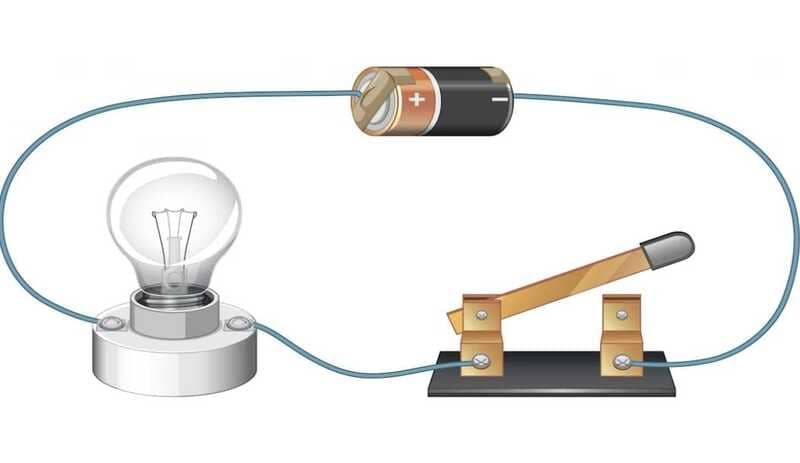Electricity is an integral part of our daily lives, but it can also be dangerous if not handled safely. Electrical accidents can be caused by a variety of factors, from faulty equipment to human error, and can result in electrical shocks, burns and even fires.
Fortunately, there are steps we can take to reduce the risk of electrical accidents both at home and in the workplace. In this article, we will provide a comprehensive guide to safety tips for avoiding electrical accidents, including information on how to keep appliances and power tools safe, comply with electrical safety regulations at work, and how to act in the event of an electrical accident.

By following these tips, you can ensure a safer electrical environment and protect yourself, your family and your employees from electrical hazards.
What is electricity and how does it work?
In order to discuss safety tips for avoiding electrical accidents, we must first know what electricity is. Electricity is a form of energy that is generated from the interaction of subatomic particles called electrons and protons. These particles have opposite electrical charges: electrons have a negative charge, while protons have a positive charge. Under normal conditions, the number of electrons and protons in an atom is equal, which means that the atom itself has no net charge.
However, when atoms are brought into contact with certain materials, such as metals, electrons can move from one atom to another, creating an electrical potential difference between the materials. This potential difference is what is known as voltage.
When an electrical circuit is created, it provides a path for electrons to flow from a voltage source through a wire and then back to the source. In doing so, electrical energy is converted into other forms of energy, such as light, heat or motion.

The flow of electrons in a circuit is called electric current. The amount of current flowing through a circuit depends on the resistance of the circuit, which is the ability of the material to oppose the flow of electrons. Resistance is measured in ohms.
Electricity can be produced in many ways, including the combustion of fossil fuels, hydroelectric power, and solar power. Electricity can also be stored in batteries and other energy storage devices. Overall, knowledge of how electricity works is essential to understanding how to use it safely and effectively.
Hazards associated with electricity.
In addition to safety tips to avoid electrical accidents, it is also important to know the dangers associated with electricity. Electricity can be a very useful and necessary resource in our daily lives, but it can also be dangerous if not handled properly. One of the most common hazards associated with electricity is electric shock. This occurs when an electric current flows through the human body. Depending on the amount of current, the duration of contact and the path the current follows through the body, the effects can range from mild tingling to death.
Another danger associated with electricity is the risk of burns. Burns can occur when a person comes into direct contact with a source of electricity, such as an exposed wire or a faulty device. Depending on the amount of electrical energy and the duration of contact, burns can range from mild to severe and may require immediate medical attention.

In addition, electricity can also cause fires. Electrical fires can be caused by electrical overloads, short circuits and faulty equipment, among other factors. These fires can spread rapidly and cause serious material damage, as well as endanger the lives of people nearby.

Therefore, it is important to be aware of and take preventive measures to reduce the risk of these hazards associated with electricity. By taking proper safety measures and following good practices, such as using safe power tools and hiring qualified electricians for maintenance and repair, we can minimize risks and maintain a safe electrical environment.
Common causes of electrical accidents.
Electrical accidents can have serious and, in some cases, even fatal consequences. It is important to know the common causes of these accidents in order to take preventive measures and reduce the risks.
One of the main causes of electrical accidents is human error. These can include improper use of power tools, improper handling of electrical equipment, and lack of proper training and ignorance of electrical safety rules. It is important to keep in mind that even a small mistake can have serious consequences and put personal safety and the safety of others at risk.
Another common cause of electrical accidents is faulty equipment. Old and damaged electrical cords, loose plugs and faulty electrical devices can be dangerous and can cause short circuits, electrical overload and other problems that can lead to accidents.
Misuse of power tools is another common cause of electrical accidents. Power tools can be extremely dangerous if not used correctly. The use of improper tools, lack of maintenance and lack of caution when working near power lines can increase the risk of electrical accidents.
Safety tips to prevent electrical accidents in the home.
Electrical safety is crucial in the home, since electrical accidents can put people’s lives at risk and cause serious material damage. Therefore, it is important to follow some safety tips to avoid electrical accidents at home.
To begin with, it is important to perform a safe installation and maintenance of household appliances. Appliances that are not properly connected can cause short circuits, electrical overloads and other problems that can lead to accidents. Therefore, it is essential to follow the installation and maintenance instructions included in the user’s manual and to make sure that the appliances are in good condition.
What to do in case of an electrical accident.
In the event of an electrical accident, it is essential to act quickly to minimize damage and protect the lives of the people involved. If someone suffers an electric shock, the first priority is to provide first aid. It is important to remember not to touch the affected person, as electricity can pass from one person to another. Instead, turn off the electrical current and immediately call the emergency services.
If the accident occurs in the home, it is important to know how to turn off the power in an emergency. This can be as simple as unplugging the appliances or switches that are causing the problem. If it is not possible to turn off the power in this way, it is important to know where the main power switch is and how to turn it off in an emergency. This will prevent electrical current from continuing to flow and minimize damage.
It is important to remember never to touch someone who is suffering an electric shock without first disconnecting the source of electricity. If it is not possible to disconnect the power source, you should try to separate the person from the source of electricity using non-conductive objects, such as a wooden stick or plastic chair.
Another important aspect is the safe installation of electrical cables, switches and plugs. Frayed or damaged electrical cords, loose plugs and switches can be dangerous and can cause electrical accidents. It is essential to regularly check electrical cables and replace those that are in poor condition. In addition, it is important to make sure that switches and plugs are securely connected and in good condition.
It is essential to take caution when using power tools in the home. Power tools can be dangerous if not used correctly. Therefore, it is essential to follow the manufacturer’s instructions and ensure that the tools are in good condition before using them. In addition, it is important to be careful when working near power lines and to avoid using power tools near wet areas.
Myths and facts about electrical safety.
In electrical safety there are many myths that can put people’s lives at risk. One of the most common myths is that electricity always seeks the path of the earth. In reality, electricity flows through any path that allows it to circulate and the human body can be a dangerous conductor of electricity.
Another myth is that electric current is less dangerous if it comes from a low voltage source. The reality is that electric current can be equally dangerous regardless of its voltage. A low voltage current can be enough to cause serious injury or even death.
There is also a myth that water does not conduct electricity. The truth is that water is a good conductor of electricity and the combination of electricity and water can be lethal.
Another dangerous myth is that you can touch an electrical wire if you are wearing rubber-soled shoes. The reality is that rubber soles are not enough to protect a person from electricity and additional safety measures are needed to work with electricity.
Finally, a common myth is that outlets and switches are safe when covered by a panel. The reality is that panels do not guarantee complete protection and electrical devices can still be active even when covered by a panel.

